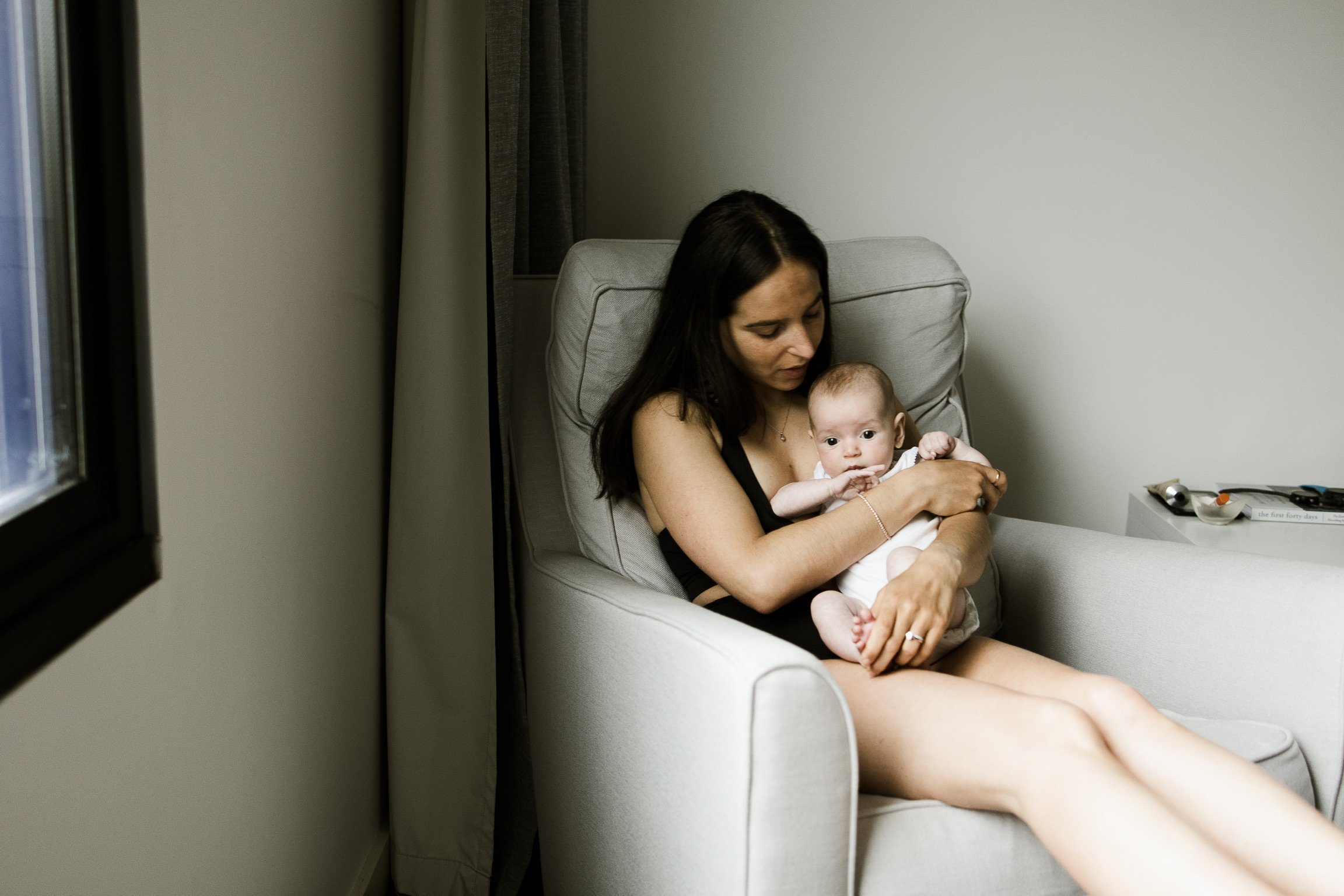My perinatal mental health journey
This week is PANDA (Perinatal Anxiety & Depression Australia) perinatal mental health week - a week to raise awareness about mental health in pregnancy and early parenthood. A cause very close to my heart.
Pregnancy and becoming a parent is such a joyful, yet absolutely crazy time. Hormones are all over the place. Brain physiology is rapidly changing and your place in society has shifted. If you have a partner, chances are your dynamic has changed. And all this while growing a baby or meeting the demands of a tiny, needy little one.
And don’t forget the discrepancy between expectation: perfect newborn who sleeps, can be put into their cot drowsy but awake (IYKYK), is happy to be passed around quietly, and latches blissfully, to reality: sleepless nights, feeding issues and a general shit show (literally and figuratively).
This is a perfect storm. How you weather this storm is absolutely no reflection on your ability as a parent.
I’m not saying this to paint early parenthood negatively. In fact, it is a fiercely beautiful stage. But I just want to highlight that it’s bloody hard. No matter how much you wanted it. No matter how much you fought for it.
I also don’t want to seem ungrateful. I am thankful everyday for my baby girl. But many would know that even if pregnancy didn’t come easy, even if this baby was years in the making, it doesn’t make this period any easier. In fact, it can make it harder, struggling with guilt over not feeling constantly elated over your pregnancy or baby.
Sage and I in the crazy early days
While I was never diagnosed with a perinatal mental health condition - I certainly faced mental health challenges in my postnatal period. It started early when I was so wired that I couldn’t sleep no matter how exhausted I was. In this time my thoughts would spiral - am I bonding enough with my baby? Do I love her enough? Does my baby love me? This of course led to exhaustion, which I then took out on my loving husband.
As the weeks went on I settled into my new role as mother. But these same questions still gnawed at me. I couldn’t help compare myself to the other beautiful mummas around me. I was lucky to be part of mothers groups who kept it real. But still, I convinced myself that their babies seemed more enraptured with them, crying when their mum left the room, latching to the boob gracefully. Why didn’t my baby do that?
Then came the feeding issues. And boy oh boy did this send me into the deepest spiral of all. Feeling inadequate. Using my babies distress at the boob as proof that our bonding was broken.
This couldn’t be further from the truth. But my tired mind took me back to this same conclusion time and time again.
Thankfully at this point I visited my GP and sought support from an amazing psychologist who helped me work through the huge questions that many new mothers face: what does it mean to have healthy attachment with your baby? What does it mean to be a good mother? What does it mean to be a good mother who also wants a career and independence?
I still don’t have all the answers to these questions, but I did make peace with the uncertainty. It wasn’t easy work, but the benefits were tremendous.
I feel incredibly fortunate that I have access to support and a partner and family who could care for my baby while I look after myself. I know others are not as fortunate.
Through my work I speak to many mothers who are still carrying the weight of unaddressed perinatal mental health issues years after having their babies. This breaks my heart. Not only does this place a mental toll, but it literally depletes physical resources and valuable nutrients from a mumma - compromising their health years on. How courageous a mumma has to be to solider on despite their troubles. Sending so much big love to you all.
So my message here is that if you are struggling with perinatal health issues you are not alone, and please get support. Speak up to your maternal child nurse - even if you don’t score high enough on questionnaires for concern. Visit your GP. Request a mental health plan for subsidised counselling. Access resources like PANDA Australia. Ask your family for help.
And please, PLEASE know that if you find pregnancy and early parenthood hard, you are not a bad parent, you are not ungrateful, you are simply a very normal human.

